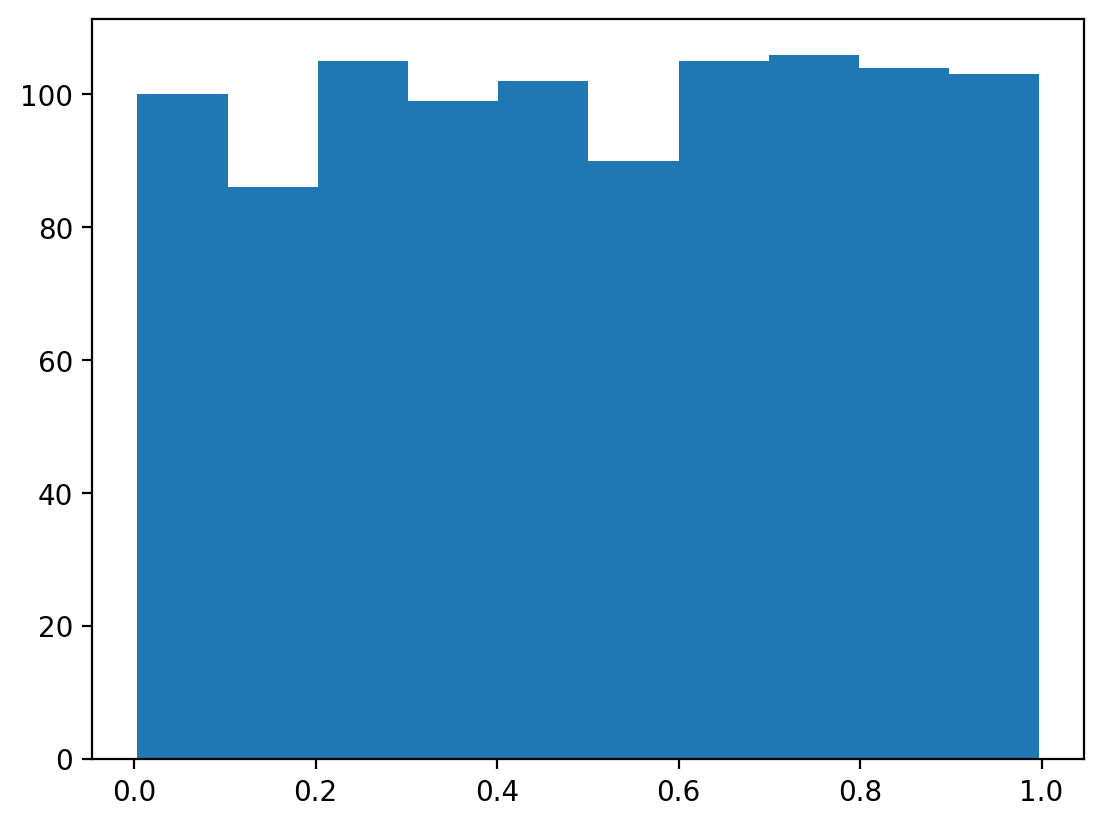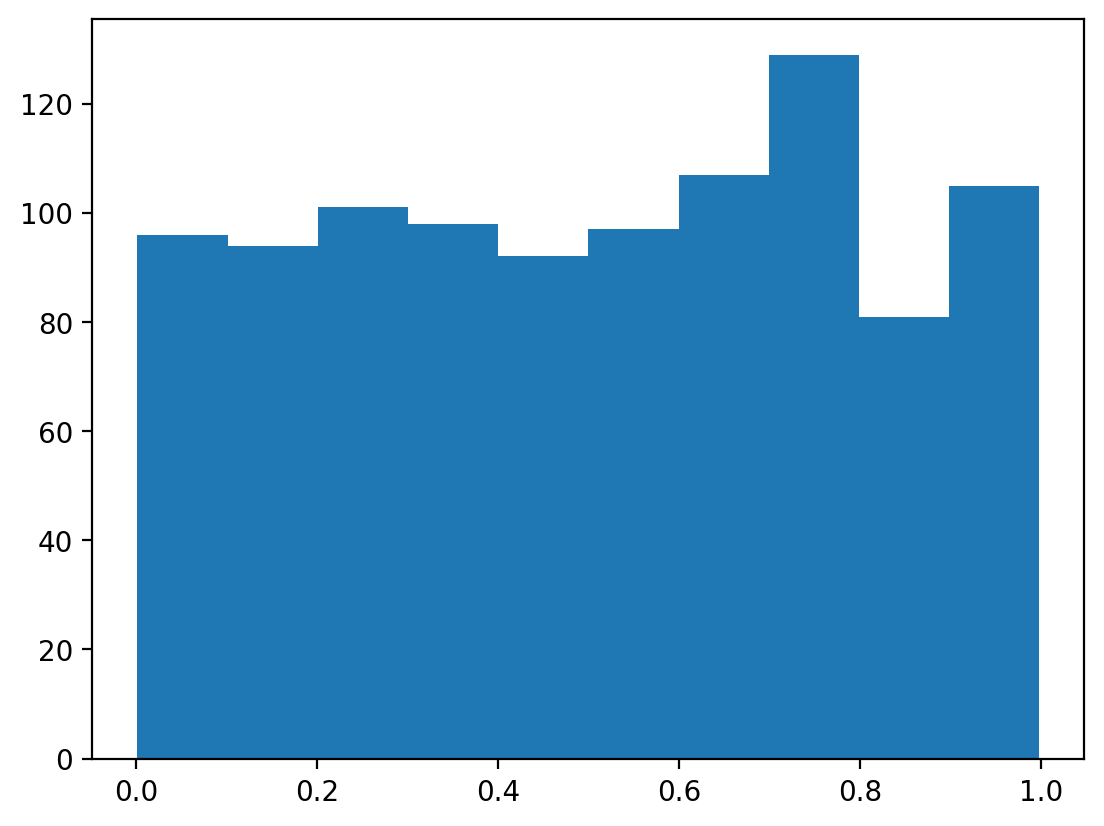first_4_chars = "appl"
probs = np.zeros(27) # 26 letters + space (EOS)
# Store i to s
itos = list("abcdefghijklmnopqrstuvwxyz ")
# stoi
stoi = {char: i for i, char in enumerate(itos)}
# Fill in the probabilities
probs[stoi["a"]] = 0.1
probs[stoi["e"]] = 0.3
probs[stoi["i"]] = 0.2
probs[stoi["o"]] = 0.1
probs[stoi["u"]] = 0.05
probs[stoi[" "]] = 0.05
probability_distribution = torch.distributions.Categorical(torch.tensor(probs))Introduction to Probability and Statistics
probability, statistics, random numbers, PRNG, uniform distribution
Introduction to Probability and Statistics
This notebook introduces fundamental concepts in probability theory and demonstrates how to generate random numbers using Python. We’ll explore both built-in random number generators and implement our own simple pseudo-random number generator (PRNG).
Learning Objectives
- Understand probability distributions and sampling
- Learn how random number generation works
- Implement a simple PRNG
- Compare different random number generators
Let’s start by importing the necessary libraries:
Probability Distributions and Sampling
Let’s start with a simple example of creating a probability distribution over characters. We’ll create a categorical distribution where certain vowels have higher probabilities:
Now let’s sample from this distribution to see which character gets selected:
Random Number Generation with NumPy
NumPy provides built-in functions for generating random numbers from various distributions. Let’s generate random numbers from a uniform distribution:
[0.18872185 0.29419573 0.05307716 0.4139927 0.80335078 0.64528118
0.4575413 0.76490687 0.53933945 0.3135855 ](array([100., 86., 105., 99., 102., 90., 105., 106., 104., 103.]),
array([0.00367548, 0.10305437, 0.20243325, 0.30181214, 0.40119103,
0.50056992, 0.59994881, 0.6993277 , 0.79870659, 0.89808548,
0.99746437]),
<BarContainer object of 10 artists>)
Implementing a Simple Pseudo-Random Number Generator (PRNG)
To understand how random number generation works under the hood, let’s implement our own simple PRNG using a Linear Congruential Generator (LCG). This is one of the oldest and most well-studied PRNG algorithms:
class SimplePRNG:
def __init__(self, seed=42):
# Initialize the generator with a seed
self.modulus = 2**31 - 1 # Large prime modulus
self.multiplier = 1664525
self.increment = 1013904223
self.state = seed
def uniform(self, low=0.0, high=1.0, size=None):
# Generate random numbers in the range [low, high)
if size is None:
size = 1 # Default to a single number if size is None
if isinstance(size, int):
size = (size,) # Convert size to tuple
# Generate random numbers
random_numbers = np.empty(size)
for idx in np.ndindex(size):
self.state = (self.multiplier * self.state + self.increment) % self.modulus
random_numbers[idx] = low + (high - low) * (self.state / self.modulus)
return random_numbers
# Example usage:
prng = SimplePRNG(seed=12345)
print(prng.uniform(0, 1, 50)) [0.04080538 0.04087837 0.54709049 0.26713204 0.42986223 0.90642683
0.59240588 0.8643601 0.45993872 0.96243078 0.56511522 0.88322526
0.98992417 0.00597593 0.55550726 0.19979239 0.90062773 0.84657695
0.96436855 0.03375009 0.34428985 0.54191328 0.67693687 0.81460587
0.30590164 0.39907677 0.73545432 0.56768856 0.26844794 0.78549411
0.06020346 0.63806449 0.76347271 0.89276656 0.72407304 0.15397659
0.35789549 0.46641842 0.58988864 0.86842092 0.80445417 0.54725703
0.48183308 0.68513887 0.24797944 0.44857785 0.52156459 0.77294949
0.22528635 0.23579403](array([ 96., 94., 101., 98., 92., 97., 107., 129., 81., 105.]),
array([0.00156537, 0.10117911, 0.20079286, 0.30040661, 0.40002035,
0.4996341 , 0.59924785, 0.69886159, 0.79847534, 0.89808909,
0.99770283]),
<BarContainer object of 10 artists>)
Let’s generate more samples and visualize the distribution:
Comparing Distributions
Let’s visualize how our custom PRNG compares to NumPy’s built-in generator: